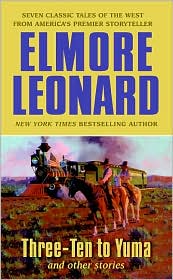
I picked this one up on a whim at S.W. Welch who was having a dollar sale. There were a few '70s disaster thrillers, many of them with an environmental theme, but this one had the best cover. I'm a huge fan of post-apocalyptic novels, so I should also like the disaster genre, but for some reason I'm wary. I guess I feel like the latter just don't take it far enough, but I could be basing that on my experience with the classic disaster movies of the 70s (Towering Inferno, Earthquake, The Swarm, etc.). I went through a phase of watching them and always found them enjoyable, but they were ultimately so soft and lame in the way that most '70s media was. As you can see, though, the cover here seems to take the flooding pretty over the top and that was enough to sell me on it.
It was a good choice. Deluge is a solid, entertaining disaster thriller in the mold of Desmond Bagley. Even better, it doesn't pull any punches. The main theme of the book is the inability of modern society to mobilize and prepare itself against potential disasters, with the short-term perspective of selfish politicians being the main individuals responsible. The protagonist is an engineer responsible for management of the Thames. Right at the beginning of the book, his project to put in a large breakwater at the head of the river is blocked by a municipal politician looking to get favour with a cost-conscious national government. That politician is a very nice character to hate and becomes especially hateful when he takes the call of the engineer's wife and tells her that the storm is already dying down and there is no reason for her not to go into the lower part of the city to her artist studio.
The first third of the book is a procedural build-up, describing in detail how the various municipal bodies work to inform and prepare the population against the potential of the Thames breaking its banks. They base their decisions on a massive storm in the north and growing reports of flooding, but because communications are inconsistent (due to the severity of the storm), they don't get the real data on how much the water has risen until it is too late.
At that point, the novel has already established several locations, including a subsidized apartment building, a metro train (with the hero's wife on board), a hospital, a construction site where a homeless man has gotten trapped and so on. The novel is well-paced and though the procedural section gets a bit confusing, you are pretty much caught up in the tension. It moves forward like the inevitable flood waters, if you will allow me the obvious metaphor.
When the flood finally comes, it really is some satisfying disaster porn. Shit gets seriously destroyed and tons of characters that you kind of thought Doyle was taking time on because they would eventually get rescued actually end up getting totally killed. One after the other. It's quite awesome. They recently made a movie out of this and it's a shame because it sounds like it totally sucked. It would make a great movie and you could do it today with all the CGI. But you would need some decent writers and smart producers and it doesn't sound like that was the case. Too bad.
In any case, a really enjoyable read and it has awakened me to the potential of the '70s disaster genre in written form. I'll have to try another one, perhaps even dare to read an American author.









